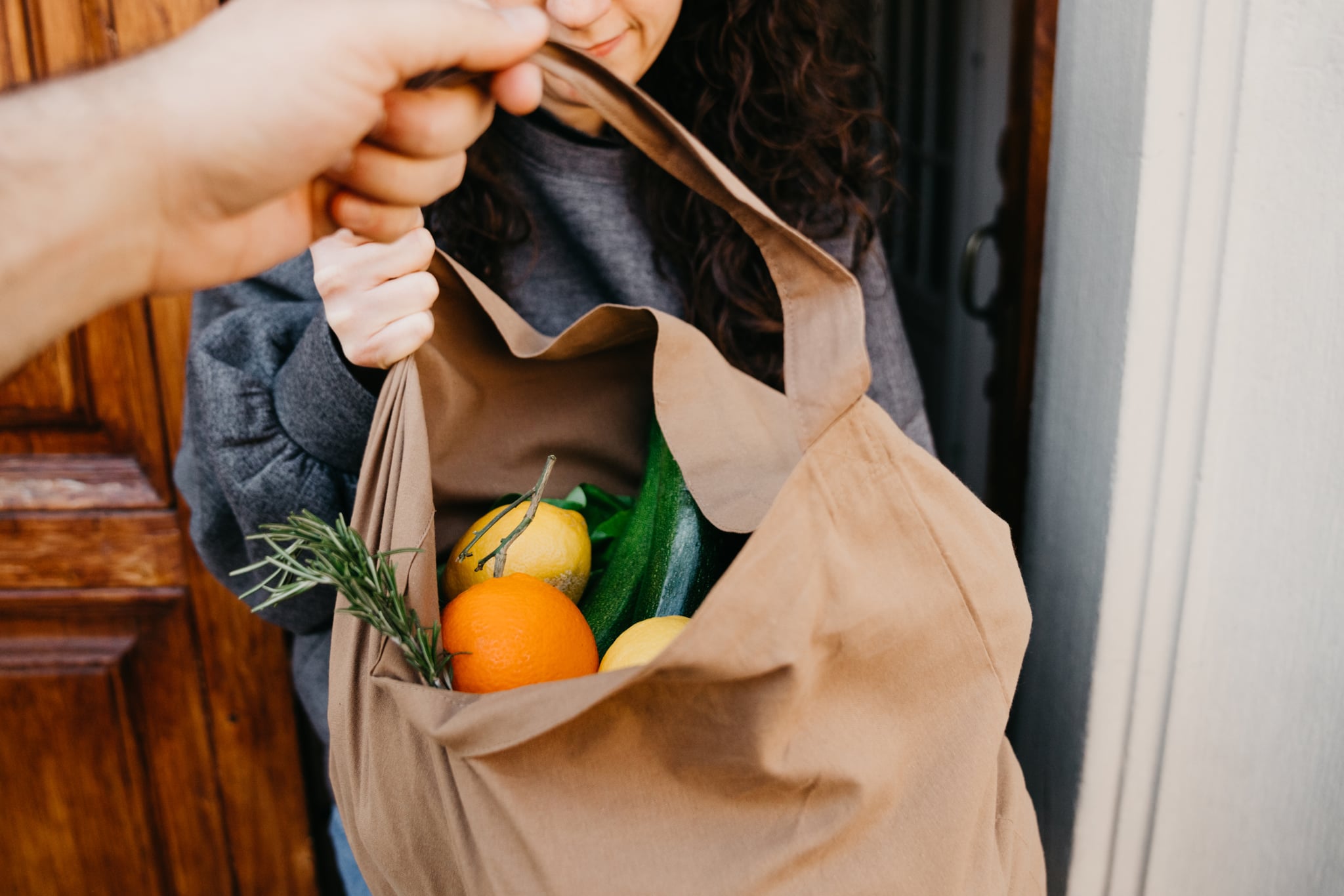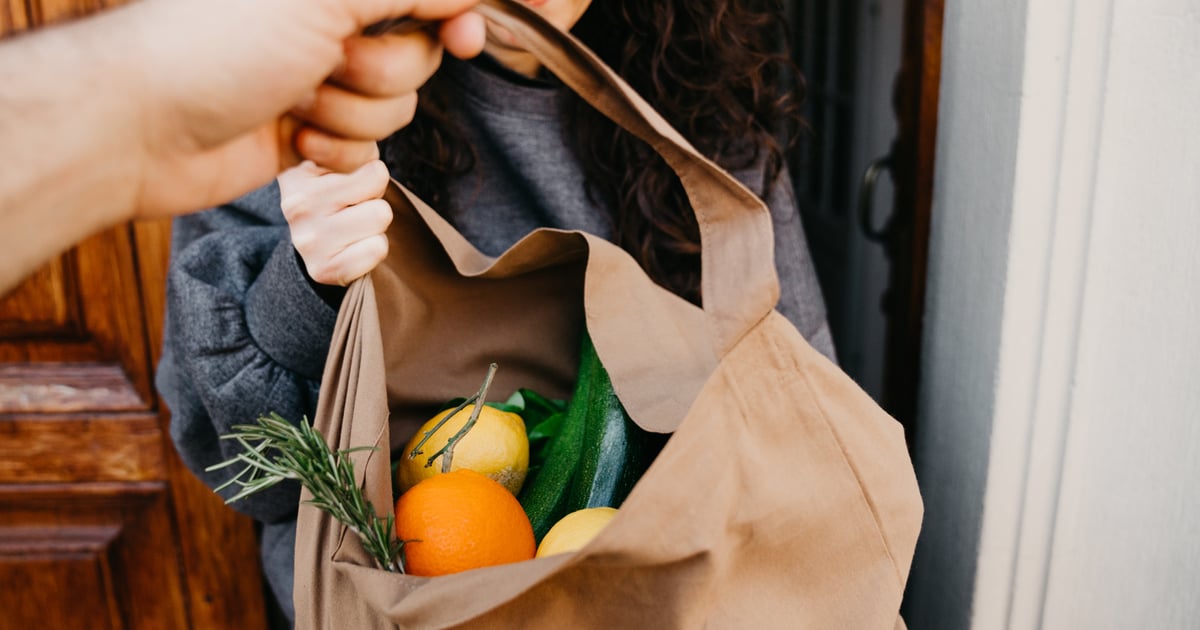
Between the long lines, the uneven stock (maybe one day we’ll have flour again), and the stress of maintaining social distance in narrow aisles, it’s not surprising that many of us are opting for takeout and grocery delivery instead of braving stores. (Takeout in particular is also a good way to support your local businesses.) You’re probably familiar with the recommendations for public social interactions, like maintaining six feet of distance and wearing a cloth mask, but what about for deliveries? You’re not in a large crowd, but it’s still important to keep your safety and the safety of delivery service employees in mind. POPSUGAR spoke with Dean Winslow, MD, an infectious-disease doctor at Stanford Health Care, to figure out how.
In general, “there’s no reason to worry about having someone come to your door to deliver food or supplies,” Dr. Winslow said. It’s a safe and convenient option because many people are being asked to limit excursions outside of the home, he noted. “The chances of your being infected by someone dropping off food are low.”
If you’re receiving groceries, takeout, or other packages at your home, continue to maintain six feet of space between yourself and the delivery person, just as you would in public interactions. Many services are simply dropping packages at the door, but if you anticipate being face to face, consider wearing a mask. (Here’s where to buy a cloth face mask and how to make your own.)
After handling a delivery, Dr. Winslow said, it’s a good idea to wash your hands with soap for at least 20 seconds or use alcohol-based gel hand sanitizer; you should do the same after you leave the grocery store, he added. Many people are taking the extra steps of unpacking groceries and deliveries in an entryway or garage, then wiping down the packaging with antibacterial wipes or spray. According to Dr. Winslow, this may be unnecessary. “It doesn’t make sense in terms of the way we know the virus is spread,” he explained.
As a reminder, the coronavirus is transmitted by “fairly large particle droplets,” Dr. Winslow explained, the kind you expel when you cough, sneeze, or exhale. “Minimizing your exposure to large crowds, particularly when you’re indoors, makes a lot of sense,” he said. That’s why getting takeout or a grocery delivery service may be a good idea: you’re not only decreasing your risk of picking up (or spreading) the virus by staying home but also reducing crowds in stores to make social distancing easier. In terms of direct transmission, though, “there’s no evidence that this is a foodborne disease,” Dr. Winslow said. The virus has been found to survive on surfaces, particularly plastic and stainless steel, where particles were still viable (able to infect people) after three days; on cardboard, particles survived for one day. In both cases, though, the virus lost strength over time.
When it comes to takeout and grocery delivery, then, it’s best to be cautious: keep your distance from delivery people (for your sake and theirs), and wash your hands after handling packaging. And don’t forget to tip the people performing these essential services; their hard work makes it possible for you to stay home and stay safe. Here are more tips for grocery shopping safely during the coronavirus pandemic.
POPSUGAR aims to give you the most accurate and up-to-date information about the coronavirus, but details and recommendations about this pandemic may have changed since publication. For the latest information on COVID-19, please check out resources from the WHO, CDC, and local public health departments.
